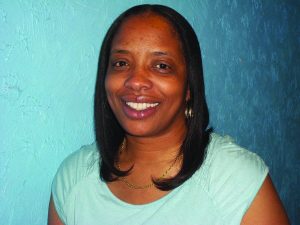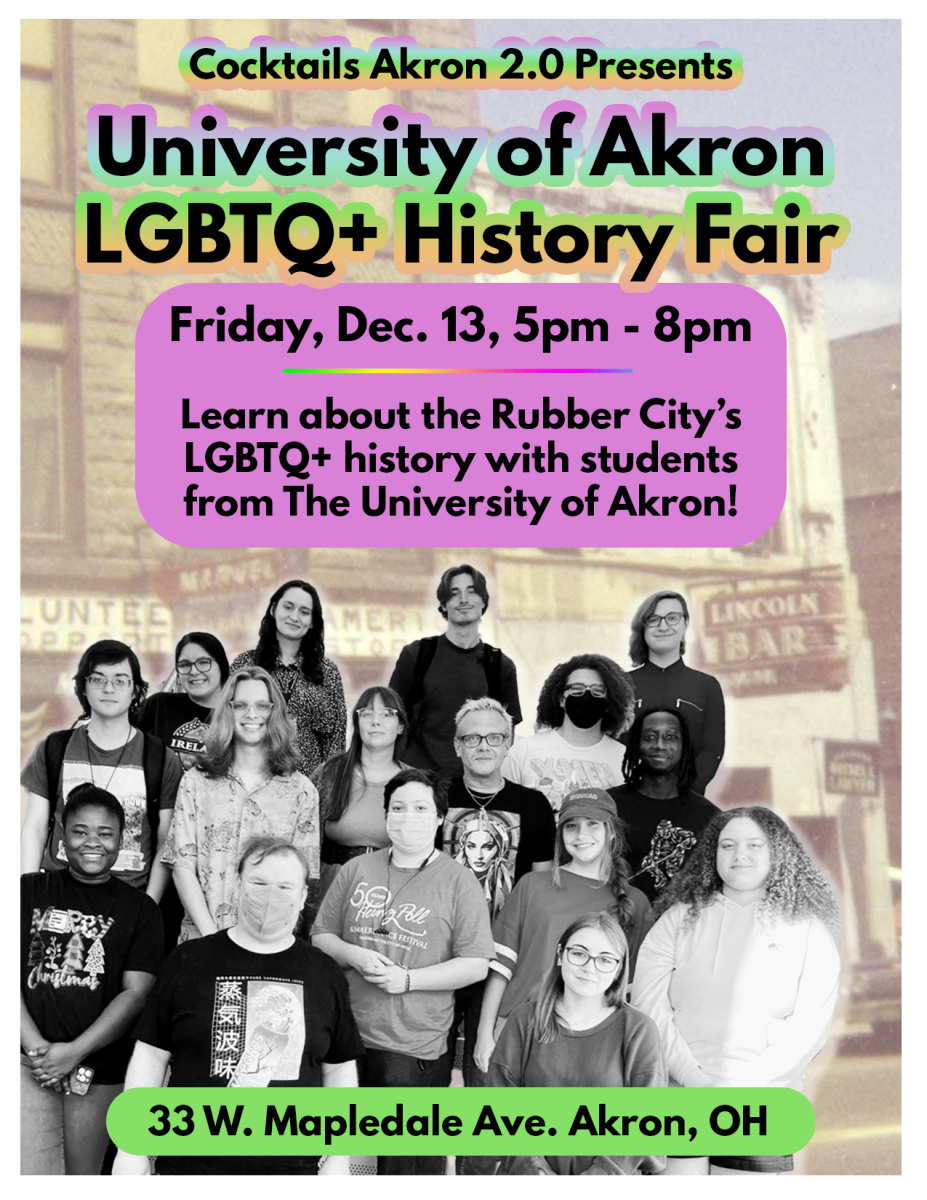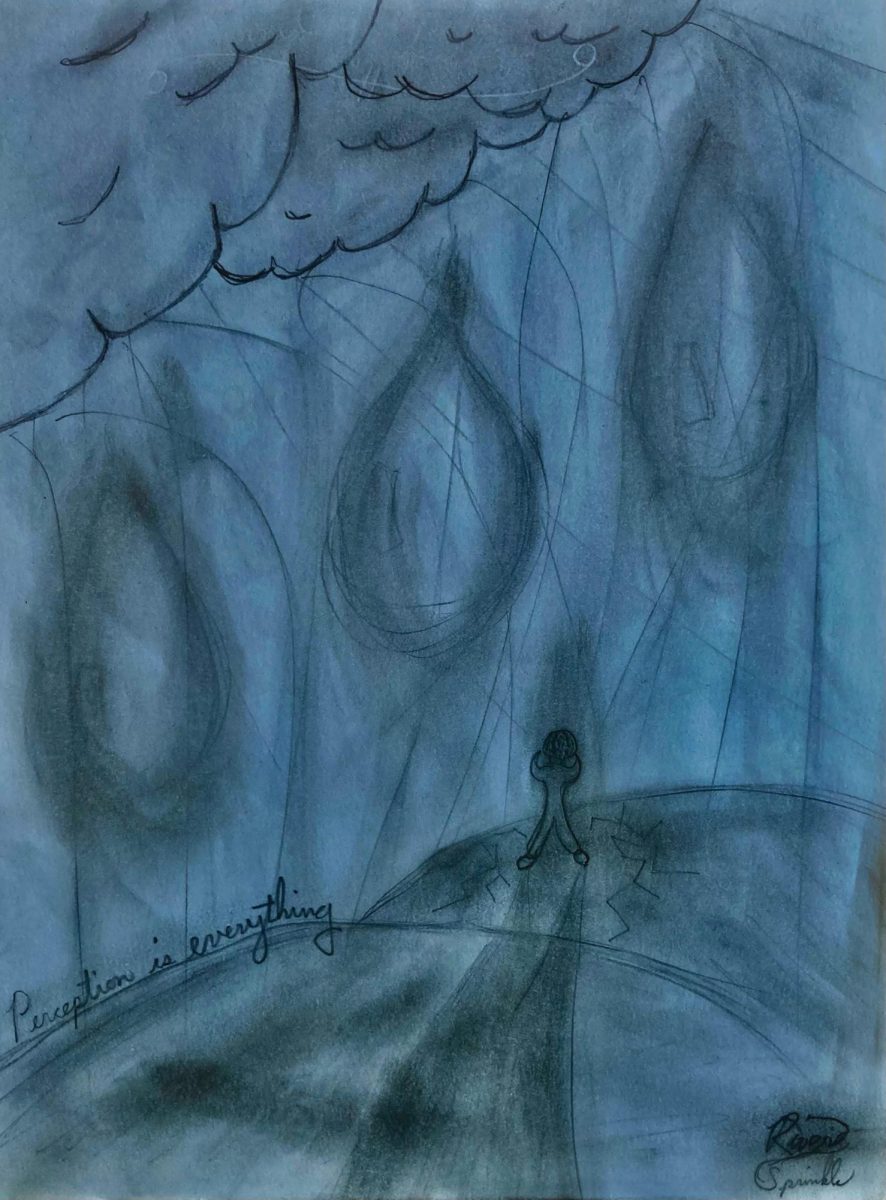‘Pizza and Proofreading’ offers writing help
Graphic by Ashlee Fields
December 3, 2014
Pizza and Proofreading, an event for writers to revise fellow writers’ work, marked the resurgence of The University of Akron’s Literary Guild.
Students with final papers due shared their work with others to revise and edit. Most students in attendance were English majors, though other liberal arts and STEM majors came as well.
The event was both entertaining and academic; students enjoyed food and drinks along with conversation before the editing began.
“I think [the event] is unique because it gives students a chance to workshop outside of class. A lot of times, class time is not really devoted to getting that critical feedback. And it’s all without the pressure of a classroom, too,” said Literary Guild treasurer Kayla Butler.
After a several year hiatus, UA’s prominent literary group is back in session. The group tacitly disbanded when previous officers could not balance rigorous schoolwork and club administration. Though Pizza and Proofreading held on Tuesday, Dec.2 in the Student Union was the only event this semester, regular meetings and other events will be held next semester.
The Literary Guild has the unique liberty to shape itself. Currently, it has no specific definition for what membership entails, except that it has to do with the written and spoken word.
“We want to be useful to students, not just be here for recreational purposes. Literature, reading, debating, writing, communication—all of that is central,” Butler said.
The guild is addressing a pervasive American trend: the lack of appreciation for literary subjects—a claim warranted by numerous studies and polls.
The National Endowment for the Arts, an independent agency of the U.S. Federal Government, recently released an exhaustive 99-page study on reading.
In unprecedented levels, they found that Americans were spending less time reading and that reading comprehension skills were eroding. The implications of these declines have grave societal consequences.
These trends are magnified in young adults and adolescents. According to the study, 65 percent of college freshmen read for less than one hour a week or not at all. By senior year, one in three of these students read nothing for pleasure in a given week. Furthermore, nearly half of all Americans aged 18-24 read no books for pleasure.
“There is a definite lack of appreciation for literature and its related subjects. We don’t read something just for the sake of reading it. There’s a lot of critical thinking and analysis that goes into it…which [employers] really value,” said Christine Martin, vice president of The Literary Guild.
Both Martin and Butler see The Literary Guild’s future as a balance of academic and creative work where students of any major can improve their writing, contrive new ideas and share the appreciation of literature.









